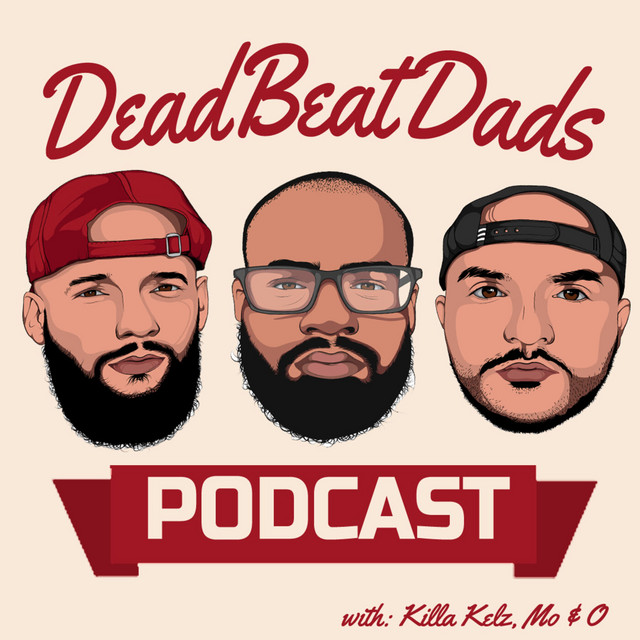In the vast realm of internet humor, few phenomena capture the absurdity of parental responsibilities like the "deadbeat dad meme". This meme genre has emerged as a sharp commentary on the stereotype of fathers who shirk their duties, often depicted in a lighthearted yet critical manner. It resonates with countless individuals who have encountered the frustrations of absentee parenting, bringing to the forefront a unique blend of humor and societal reflection.
From viral images to witty captions, the deadbeat dad meme serves as both a source of entertainment and a platform for discussion about the expectations placed on fathers in modern society. As the meme culture continues to evolve, this particular meme has cemented its place in the collective consciousness, providing a lens through which we can explore the complexities of fatherhood, responsibility, and the impact of social media on our perceptions of family dynamics.
As we delve deeper into the phenomenon of the deadbeat dad meme, it is essential to understand its origins, the various forms it takes, and the societal implications it brings to light. This article will not only explore the humor behind these memes but also examine the cultural narratives they perpetuate, making it a fascinating topic for both meme enthusiasts and those who appreciate a good laugh.
What is the Origin of the Deadbeat Dad Meme?
The deadbeat dad meme traces its roots back to various cultural references surrounding fatherhood. It draws on the archetype of the irresponsible father, often portrayed in movies, television shows, and, more recently, social media. These portrayals have helped shape public perception of what a "deadbeat dad" is, creating a stereotype that is both humorous and relatable to many.
How Did the Deadbeat Dad Meme Gain Popularity?
The rise of social media platforms such as Twitter, Instagram, and Reddit has played a significant role in the popularity of the deadbeat dad meme. Memes are shared widely, often going viral, thanks to their humorous and relatable content. As more people began to share their own experiences with absentee fathers, the meme evolved, incorporating various formats and styles that appealed to a broader audience.
What Are Common Themes in Deadbeat Dad Memes?
Deadbeat dad memes often highlight several recurring themes, including:
- Absence: A significant focus on fathers who are physically or emotionally distant from their children.
- Excuses: The humorous excuses that deadbeat dads make to justify their absence.
- Contrast: Juxtaposing responsible father figures with the stereotypical deadbeat dad.
- Parental Responsibility: A critique of the societal expectations placed upon fathers.
Who Are Some Notable Figures Associated with the Deadbeat Dad Meme?
While the deadbeat dad meme is largely a cultural phenomenon, certain public figures have become emblematic of the trope. These individuals often find themselves at the center of meme culture due to their perceived shortcomings as fathers. One such figure includes comedian and actor, Dave Chappelle, whose comedic routines often touch on themes of fatherhood and responsibility.
| Personal Details | Bio Data |
|---|---|
| Name | Dave Chappelle |
| Birth Date | August 24, 1973 |
| Occupation | Comedian, Actor, Writer |
| Notable Works | The Chappelle Show, Half Baked, A Star Is Born |
| Children | Three |
How Are Deadbeat Dad Memes Used in Social Commentary?
Deadbeat dad memes are not just for laughs; they often serve as a form of social commentary. They bring attention to the real-life implications of fatherhood, including the emotional and psychological effects of absenteeism on children. By using humor, these memes can spark discussions about parental responsibilities, societal expectations, and the importance of being present in a child's life.
What Role Does Humor Play in the Deadbeat Dad Meme Culture?
Humor is at the heart of the deadbeat dad meme, allowing individuals to cope with the frustrations of dealing with absent fathers. By turning serious issues into laughable content, people can bond over shared experiences and find solace in knowing they are not alone. This humor also serves as a coping mechanism for many, allowing them to process their feelings about absentee fathers in a lighter way.
Are There Any Consequences of the Deadbeat Dad Meme?
While the deadbeat dad meme is often humorous, it is essential to consider its potential consequences. By reinforcing negative stereotypes, these memes can contribute to harmful perceptions of fatherhood, leading to societal judgments about fathers who may be struggling due to various circumstances. Furthermore, such memes can trivialize the pain experienced by children due to absent parents.
Can the Deadbeat Dad Meme Lead to Positive Change?
Interestingly, the deadbeat dad meme can also inspire positive change. By highlighting the importance of active and responsible fatherhood, these memes can encourage conversations around parenting and motivate fathers to take their roles seriously. In this way, humor can serve as a catalyst for meaningful discussions about the responsibilities of parenthood.
How Can We Navigate the Fine Line Between Humor and Harm in Memes?
As with any form of humor, it is crucial to navigate the fine line between humor and harm when it comes to deadbeat dad memes. While they can be entertaining and relatable, it is essential to maintain a level of sensitivity to the real-life implications these memes can have. Engaging in thoughtful discussions and recognizing the nuances of fatherhood can help ensure that humor does not come at the expense of those who may be genuinely affected by the issues being satirized.
In conclusion, the deadbeat dad meme represents a fascinating intersection of humor, societal reflection, and cultural commentary. As we continue to explore this meme's evolution and impact, it becomes clear that while it may be amusing, it also serves as a reminder of the complexities of parenthood and the importance of being present in a child's life. By understanding the origins, themes, and implications of the deadbeat dad meme, we can foster a more nuanced conversation about fatherhood and its responsibilities.


